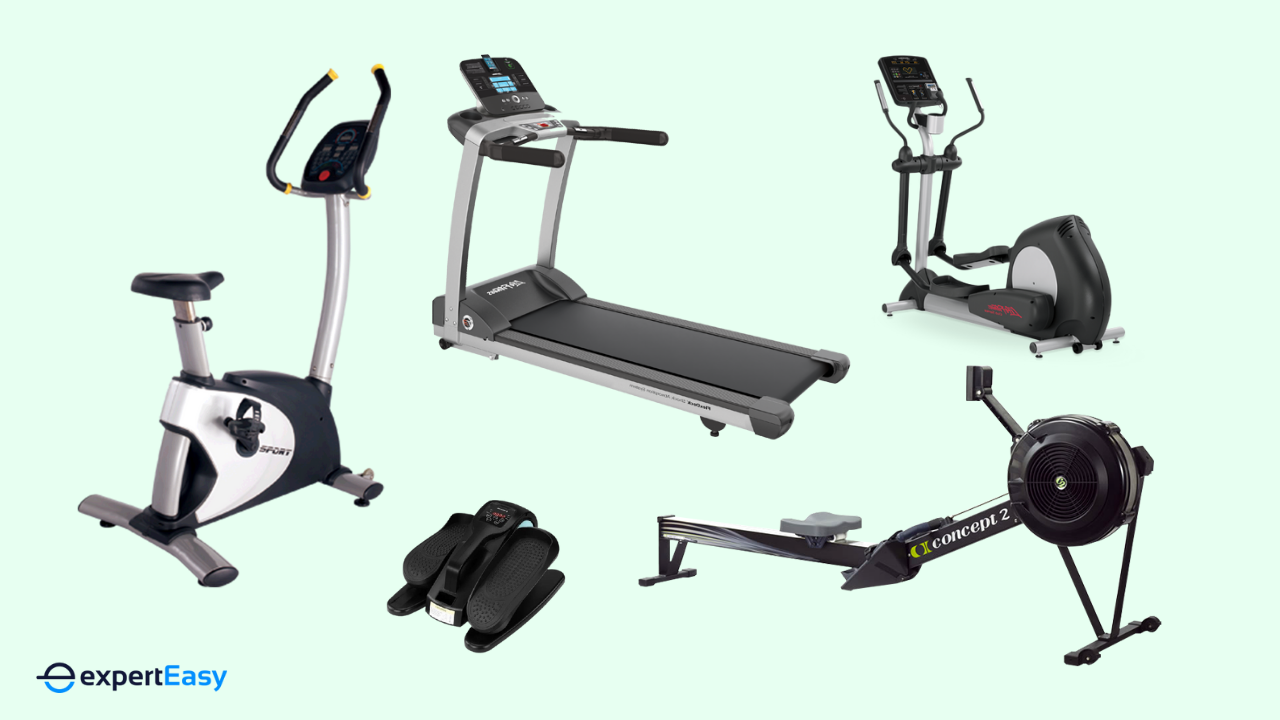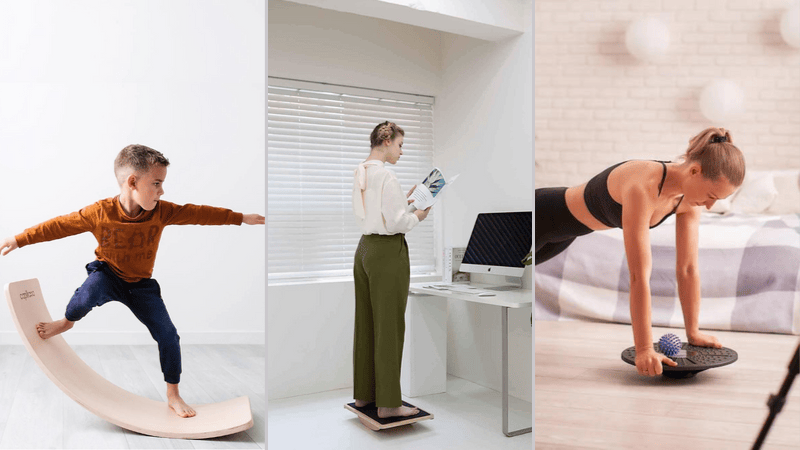In the past few years, home workouts have become more popular within the fitness community, and there's an ongoing discussion about home vs gym workouts.
The decision to lean on one heavily depends on your preferences and fitness goals. This blog will discuss the advantages and limitations to help you decide.
Advantages of Home Workouts

Embarking on a fitness journey from the comfort of your home comes with numerous benefits. Let's explore these advantages in detail.
Pro #1 - Convenience and Accessibility
Home workouts offer convenience, sparing the need to commute and providing the flexibility to exercise on your terms.
- No commuting time or costs: Say goodbye to traffic jams and long journeys; your workout is just a few steps away.
- Flexibility in scheduling: Tailor your exercise routine to your unique schedule, fitting fitness seamlessly into your daily life. You can incorporate versatile equipment like the rowing machines at home to enhance your home workout experience.
Pro #2 - Cost-effectiveness
Besides being convenient, at-home workouts are cost-effective, freeing you from the financial burden of traditional gym memberships and expensive equipment.
- Savings on gym membership fees: Your wallet will thank you as you avoid monthly gym subscription costs.
- Expensive equipment is not required: You can achieve your fitness goals with minimal investment using budget-friendly or no-cost home workout equipment. For example, you can make use of free yoga classes online and exercise apps to keep fit at home.
Pro #3 - Privacy and Comfort
The home workout environment offers a haven, shielding you from potential threats and allowing you to curate a space that suits your preferences.
- No intimidation from the gym environment: At home, you're the master of your fitness domain without judgment from strangers. This helps you mentally when working out.
- Customisable workout space: You can also tailor your exercise area to your liking, creating a space that enhances your comfort and motivation.

Limitations of Home Workouts
While home workouts are convenient, they also present some challenges. Here are some of their limitations to help you make well-informed decisions.
Con #1 - Lack of Professional Guidance
One significant drawback of home workouts is the absence of direct guidance from fitness professionals, which can impact one's fitness journey.
- Importance of proper form and technique: Without a trainer present, you must educate yourself on correct leg, cardio, and chest workouts at home to prevent injuries and maximise effectiveness.
- Challenges in self-motivation: On the other hand, being your own coach requires discipline. Thus, staying motivated can be a hurdle that would require proactive management.
Con #2 - Limited Equipment Options
Home workouts may suffer from a lack of specialised equipment, which can hinder one's ability to do diverse exercises and challenge oneself.
- Difficulty replicating gym equipment at home: While creative alternatives exist, replicating specific gym machines may be challenging and expensive, limiting exercise variety.
- Potential plateau in progress: The limited equipment may lead to a plateau in your fitness journey. To overcome this, ensure strategic planning and ongoing innovation in your routine.
Con #3 - Social Isolation
Another significant hurdle to exercising at home is social isolation. If you have family or friends around, that's a plus. Otherwise, being alone can affect the motivational boost from shared experiences.
- The impact of camaraderie on motivation: The positive influence of working out with others is absent at home. Thus, we recommend finding ways to recreate this at home.
- Overcoming loneliness in solo workouts: Solo workouts may lead to feelings of isolation. But you can avoid this by connecting with online fitness communities or engaging in virtual workout sessions.

Advantages of Gym Workouts

A whole new array of benefits emerges when it comes to a gym workout routine. It offers a dynamic and motivating fitness experience. You can access state-of-the-art equipment, professional guidance, and various classes catering to different fitness levels and preferences.
Pro #1 - Access to Professional Guidance
Gyms provide a supportive environment with access to trained professionals who can enhance your fitness journey.
- Trained fitness instructors and personal trainers: You can learn from the expertise of professionals who can guide you through exercises, correct your form, and tailor complete gym workout programs to your goals.
- Structured workout programs: Gyms often offer structured plans, providing a roadmap for your fitness journey and ensuring a well-rounded approach to exercising for your overall well-being.
Pro #2 - Variety of Equipment
Commercial gyms are often equipped with a diverse range of machines that offer a comprehensive and customisable workout experience, accommodating individuals with different fitness goals and levels.
- Targeted muscle isolation with specialised machines: Access machines designed to focus on specific muscle groups, allowing for precise and effective workouts.
- Cardiovascular options beyond home setups: Enjoy a variety of cardio machines, providing diverse and challenging options to boost your cardiovascular workouts.
Pro #3 - Motivational Environment
A gym's social and motivational atmosphere can significantly impact your commitment and enthusiasm for regular exercise.
- Positive peer influence and competition: Surrounding yourself with like-minded individuals striving for similar goals can foster a positive and competitive spirit that elevates your performance.
- Group classes and team sports: Engage in group workouts or team sports. This way, you can leverage the collective energy and encouragement from working out alongside others.

Limitations of Gym Workouts
For potential dealbreakers, here's what you should know:
Con #1 - Time and Schedule Constraints
Navigating gym hours and peak times can pose several challenges to your daily routine, impacting your ability to exercise efficiently.
- Peak hours and equipment availability: Popular gym times often lead to crowded spaces and limited access to equipment. Thus, you may have to plan your workouts during off-peak hours for a more comfortable experience.
- Potential long waits for popular machines: Waiting for coveted gym machines, like chest and leg workout machines, during busy periods can also be time-consuming.
Con #2 - Cost Considerations
While the advantages of a gym workout routine are tempting, financial considerations should also be factored into your decision-making.
- Monthly membership fees and additional charges: Gym memberships come with a recurrent cost, and extra fees for services or classes may apply. Investing in a home gym only has an intensive upfront cost.
- Hidden costs such as travel expenses: Travel costs and time spent commuting to the gym are hidden costs that make commercial gyms less attractive.
Con #3 - Intimidating Atmosphere
The gym environment, while motivating, can also be intimidating, particularly for beginners.
- Overcoming gym anxiety for beginners: Entering a gym for the first time can be nerve-wracking.
- Navigating through the crowds: Busy times can make navigating the gym challenging.
Gym vs. Home Workouts: Which to Choose?
To ensure your fitness journey aligns with your needs and preferences, making informed decisions is crucial. Here are the key factors to consider in this decision-making process.
Assessing Personal Fitness Goals
Understanding your fitness objectives forms the basis for creating an efficient workout plan. Define your primary objectives, then tailor your workouts to align with them, whether you aim to shed weight, build muscle, or enhance overall well-being.
The gym is the ideal fit for a dynamic and socially engaging experience. But if you value convenience and autonomy, choose the flexibility of home workouts. Combining both approaches can offer a balanced fitness regimen, allowing for the best of both worlds.
Create a workout space that complements your goals. Whether it's a home setup for convenience or a gym for specialised equipment, tailor the environment to suit your needs. Consider incorporating under-desk treadmills for added versatility, allowing you to combine work and fitness seamlessly.
Using a Hybrid Approach
Combining the advantages of home and gym workouts can offer a well-rounded fitness solution. You can leverage the convenience of home workouts to ensure flexibility in your routine, allowing you to adapt your workouts to the demands of daily life.
Similarly, you can capitalise on gym facilities for expert guidance from trainers and access to a diverse range of equipment that may not be available at home. Using a hybrid approach requires careful planning of your fitness goals and routines to ensure a seamless workout experience.
Monitoring Progress and Adjusting the Routine
As mentioned above, a fitness goal is crucial to a wholesome workout experience. Gyms often have a tailored workout plan from fitness specialists based on your fitness needs. This brings the added convenience of tracking your goals and monitoring progress effectively.
If preparing a workout program and tracking your progress are not necessarily dealbreakers, then home workouts are ideal. Remember, continual assessment and adaptation are critical to sustained improvement in your fitness journey. Maintain a record of your achievements and challenges.
We recommend monitoring metrics like weight, repetitions, and endurance to get valuable insights into your advancement. Likewise, regularly evaluate your routine and be open to adjustments. If specific exercises aren't yielding the desired outcomes, modify your regimen to optimise effectiveness.
Frequently Asked Questions (FAQs)
Here are some frequently asked questions on home workouts and commercial gyms.
Why gym is better than home gym?
A gym offers several advantages over a home gym. It provides a wide variety of equipment, professional trainers for guidance, and a motivating environment with other fitness enthusiasts. However, choosing between a gym and a home gym should be based on your preferences, goals, and circumstances.
Is a home workout enough to build muscle?
Yes, a home workout can be sufficient to build muscle if it is done correctly and consistently. This involves using the right techniques, incorporating a variety of exercises that target different muscle groups, and progressively increasing the intensity of the workouts. Ensuring adequate nutrition and rest for muscle recovery and growth is also important.
How long does it take to see results from a home workout?
The time it takes to see results from a home workout depends on the intensity of the exercise, your fitness level, diet, and consistency of training. However, with regular and consistent workouts, noticeable strength and muscle tone improvements can often be seen within two to three months. It’s important to remember that fitness is a long-term commitment, and the most significant results are often seen over time.
Should I pay for the gym or workout at home?
Paying for a gym membership or workout at home depends on several personal factors. A gym is worth the investment if you prefer a variety of equipment and professional guidance. However, a home workout is better if you value convenience, privacy, and saving money.

Conclusion
The choice between home and gym workouts boils down to individual preferences. Fitness is a personal journey; what works for one person may not work for another. Thus, embrace the diversity of your fitness preferences, understanding there's no one-size-fits-all solution.
We recommend experimenting to find which workout setting aligns with your convenience and personal satisfaction. However, amidst this exploration, one constant remains: consistency. Regardless of the chosen environment, staying committed to a regular workout routine is the secret to achieving lasting fitness goals.








